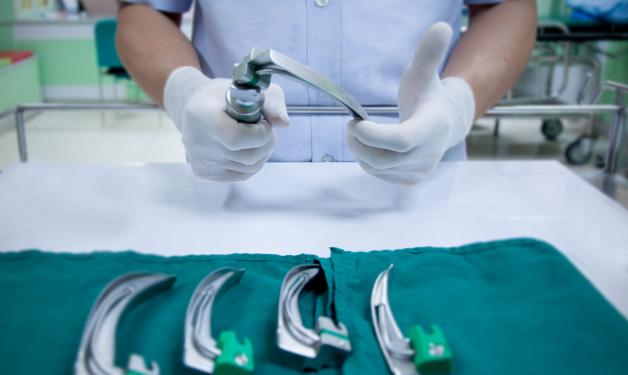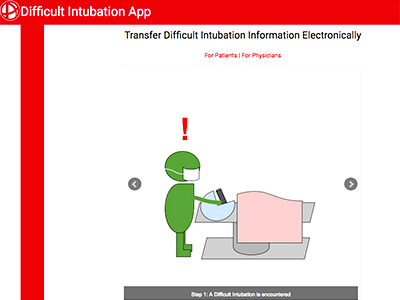
Better access to information will increase safety in the operating room.
Even anesthesiologists with extensive airway experience may encounter patients who prove difficult to intubate, including Vancouver Coastal Health Research Institute scientist Dr. Raymond Tang. What Dr. Tang finds especially frustrating is that a number of these patients have already been through previous procedures in which another physician found it difficult to intubate them, but the information about what techniques failed and what finally worked is lacking. Such information allows for successful intubation on the first try and reduces adverse health risks.
“Each time that you fail an intubation attempt and make another, it increases the patient’s risk of complications,” explains Dr. Tang, who is a clinical assistant professor in the Department of Anaesthesiology, Pharmacology, and Therapeutics in the Faculty of Medicine at the University of British Columbia (UBC).
“You want to successfully intubate the patient at the first go around if at all possible – this is very much an issue of safety.”
Intubation safety is a concern enough that it is strongly recommended by international anesthesia associations that letters be issued to patients who were difficult to intubate during a medical procedure explaining what made intubation challenging and what was successful. In non-emergency situations, patients are expected to present the letter to their clinician during pre-operative preparation or consultation. This provides their care providers valuable information on how best to manage their airway. However, patients don’t always have the letter on them.
“We see this a lot when we meet with patients before surgery who mention that there were problems with intubation during a previous procedure,” says Dr. Tang. “They mention that they may have received a letter but they often don’t know what happened to it, which sometimes leaves us in a quandary trying to find out. This is particularly problematic when the issue was encountered in another health institution or country.”
Not knowing more about what works for each difficult-to-intubate patient sparked Dr. Tang’s team’s interest in developing an additional method by which patients can inform their clinicians about their history of difficult intubation. Although patients don’t always bring their letter, they almost always bring their smartphone to their appointments, and Dr. Tang wondered if there was a way to keep the letter on such a device.
Working with computer science students at UBC, Dr. Tang and his colleagues developed the Difficult Intubation App, available for android and iOS devices. The app creates a standardized letter with all of the pertinent information explaining what worked and what didn’t for the patient who was difficult to intubate. Patients have the option of keeping the letter on their phone after scanning a QR code on the letter. Having the information kept on paper and on patients’ phones may increase the chances this important information is conveyed to their care providers. In addition, using a QR code to transmit the data to the patient’s phone avoids storing patients’ private medical data on a separate database.

According to Google Analytics, the website has already been accessed by several hundred people all over the world.
“We encourage patients who have a difficult airway to also get a MedicAlert bracelet for emergency situations when they cannot communicate this information to physicians. Having this information on their phone, on paper, and also on a MedicAlert bracelet will ensure their airway would be secured in the safest manner possible and the treating anaesthesiologist doesn’t have to start from square one,” says Dr. Tang. “So, if I have this information ahead of time telling me that a certain technique worked much better than another on a patient, it makes things much safer and more efficient for everyone.”



